Ordinary Chinese Life
Americans are taught to fear China through government and media pronouncements. Yet setting aside any concerns about the country’s political system and governance, are the Chinese people really all that different from you and me? The vast majority are just ordinary men, women, and children living relatable, ordinary lives—dealing with commutes; juggling school and extracurricular activities; worrying about bills; and planning free time. Our routine similarities are humanizing.
Pingyuan New District, Henan, China
The Chinese go about their daily lives trying to do their best in the venues they know and might hope to be able to influence…their local communities. It is usually not exciting. The mundane is what defines most of our lives most of the time.
Visiting Central China earlier this year, I spent a few weeks in a local community. I commuted on the above bus from Pingyuan (平原, Flat Plain) New District, part of a newer satellite city, to and from the provincial capital, Zhengzhou. Like cities everywhere, commuting in China brings with it conveniences and inconveniences.
Below is a snapshot of China and everyday Chinese life. It should feel familiar.
Yellow River looking east
Between us and Zhengzhou to the south was the almost seven-mile-long, six-lane-wide, double-decker, combination road-rail Zhengxin Yellow River Bridge. The bridge crosses at a bend in the mighty Yellow River coursing through the Chinese heartland.
From the elevated highway, several farms and villages remain visible, but much of the former agricultural landscape that stretched outwards has been converted into urban cityscape, albeit one with ample man-made lakes and parks and recreation areas.
In the built-up areas it is not uncommon to see brooding hulks of unfinished residential towers and half-populated neighborhoods, testaments to struggling economic times.
We joined others walking and riding to and being dropped off at the bus stop. Urban Chinese generally live in walled neighborhoods each containing more than a dozen hi-rise condos with pathways and play areas. The walk from our hi-rise to the bus stop was less than ten minutes.
A tree-shaded street with dusty sidewalks led to a commercial corner on the way to our destination. The cafes and smaller supermarket will be bustling once evening arrives. Food carts will line the streets; a ping pong table and games will be crowded on a fronting plaza across from the market. In the morning, it is the quiet domain of strewn trash waiting to be cleaned up and children heading to the nearby Danjiang Road Elementary School.
During our first three days (a Sa, Su, Mo), there was a checkpoint as the bus approached the Zhengxin Yellow River Bridge. Our fellow riders chittered about it; no one knew why it had suddenly appeared. Police officers came on board checking everyone’s shenfen zheng (identity card).
I was unexpected. At the beginning of the trip, I was not carrying my passport. Liana explained that I was her husband. The officers looked at me, decided I was not worth further effort, and sent the bus on its way downtown.
And then on Tuesday, the checkpoint was no more and did not return. One of those wrinkles in daily life (albeit this one will hopefully not become too common in America) that are accepted, rolled with, and moved past.
The bus stop on Binhu Blvd faces the side of the elementary school. In the morning, the area is a sea of pedestrians and vehicles of all sorts--cars running the gamut from SUV to tiny; local, three-wheeled, covered trikes; and scooters, all streaming toward the school entrance on Pingyuan Blvd.
In the afternoon, large barricades are wheeled across the street closing off the road in front of the school gate so that parents, grandparents, and caregivers can swarm in to pick up their charges.
China may be facing a demographic crisis, but there are still lots and lots of kids.
On a Monday after the three-day Qingming (Tomb-Sweeping) Festival weekend, the School held an extended Patriotic Education (aigo jiayu) assembly in the yard. We listened courtesy of garbled loudspeakers while waiting for the bus across the street. There was flag raising, singing, speeches, and award presentations.
Even though the day’s swelter was as yet far from its coming intensity, I cannot imagine the children, like those anywhere, being thrilled to be standing in formation for such a long period of time. We were too far away to notice, but I am sure there was fidgeting in the ranks.
Catching the bus could be a challenge, even for the Chinese who are conditioned by society to be more patient than Americans in dealing with occurrences such as commuting hiccups. Being the last stop before heading south to Zhengzhou, the bus was frequently full or almost full. A given bus might let a handful of people on or only two, if any. The rare bus could be more accommodating. Several times we had to wait for either the next or the next next bus before we made it on.
Prospective passengers stood in an orderly line while waiting. The line would part for bike riders and the small truck coming down the bike lane behind the shelter to pick up public, shared scooters to relocate them to other sites. Private cars occasionally stopped and offered to bring people downtown if they could not wait. We opted for this one time with another woman when we had to get to an appointment.
The route is popular, convenient, and cheap. Too cheap. The scuttlebutt one day was that there would be fewer buses beginning the following morning because the route was losing money. And this in fact happened. The bus fare is only two yuan. We paid ten each when taking the private car. If the fare was doubled or more (say, five yuan), ridership would remain strong. There would be grumbling, but there was some agreement in line that this solution was preferable to slower service.
Top two lines on bus shelter sign -- Create a Civilized City/Build a Beautiful Home
We were kicked off one bus after paying and getting on because the available seats filled up before we could snag them (the driver miscounted, and I was too slow). Standing is prohibited on intercity buses, though it is allowed on metro buses in Zhengzhou proper.
While waiting for the next bus, a man sitting with his grown son in the bus shelter asked if I was Russian (the first of several such inquiries during my time in Henan). When I replied American, he came out with an old chestnut, saying “Americans are all rich.” He and his son (an apprentice artist) are calligraphers, painters, and sculptors. As the next bus approached, the man ended with a smiling, “You are American, I salute you.”
Conversations flowed while standing around. Rider to rider. Rider to person on other end of a cellphone. One can't help overhearing. Raising children is expensive in China: sports, music lessons, clothing, tutoring, schooling, preparations for the gaokao college-entrance exam. And there are also matters of making mortgage payments amidst depressed property values, investment rental vacancies, and planning lunches, nights out, and shopping dates.
Ordinary life among ordinary people in Springtime China.






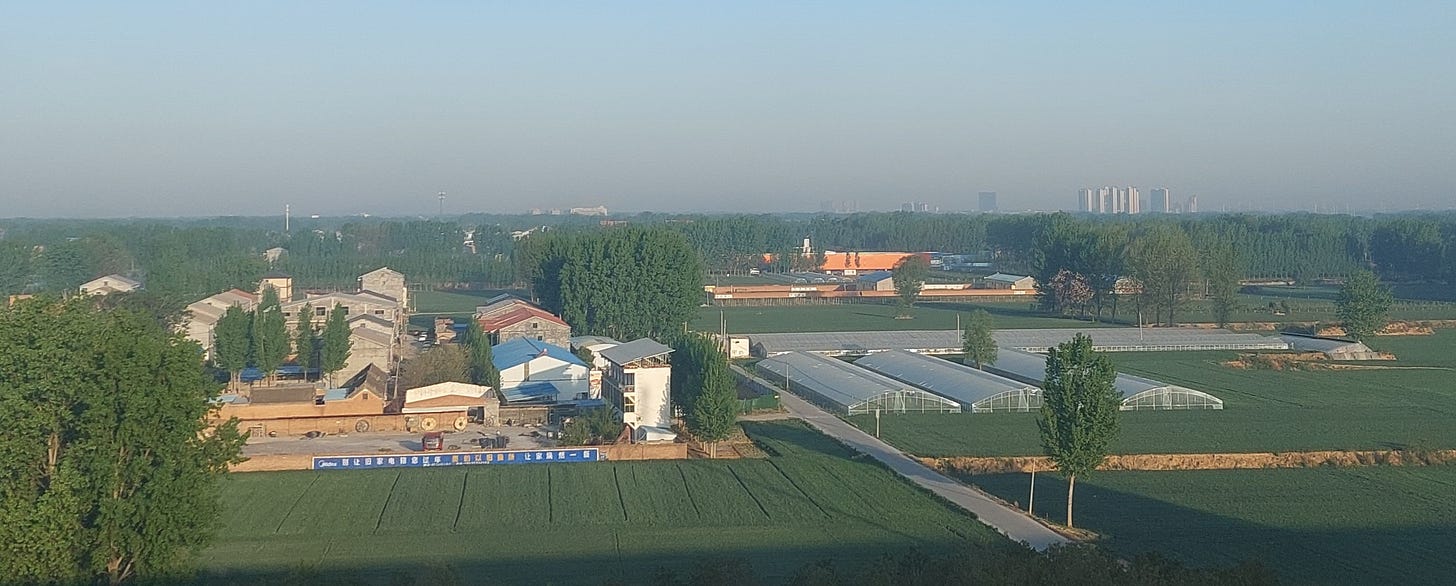

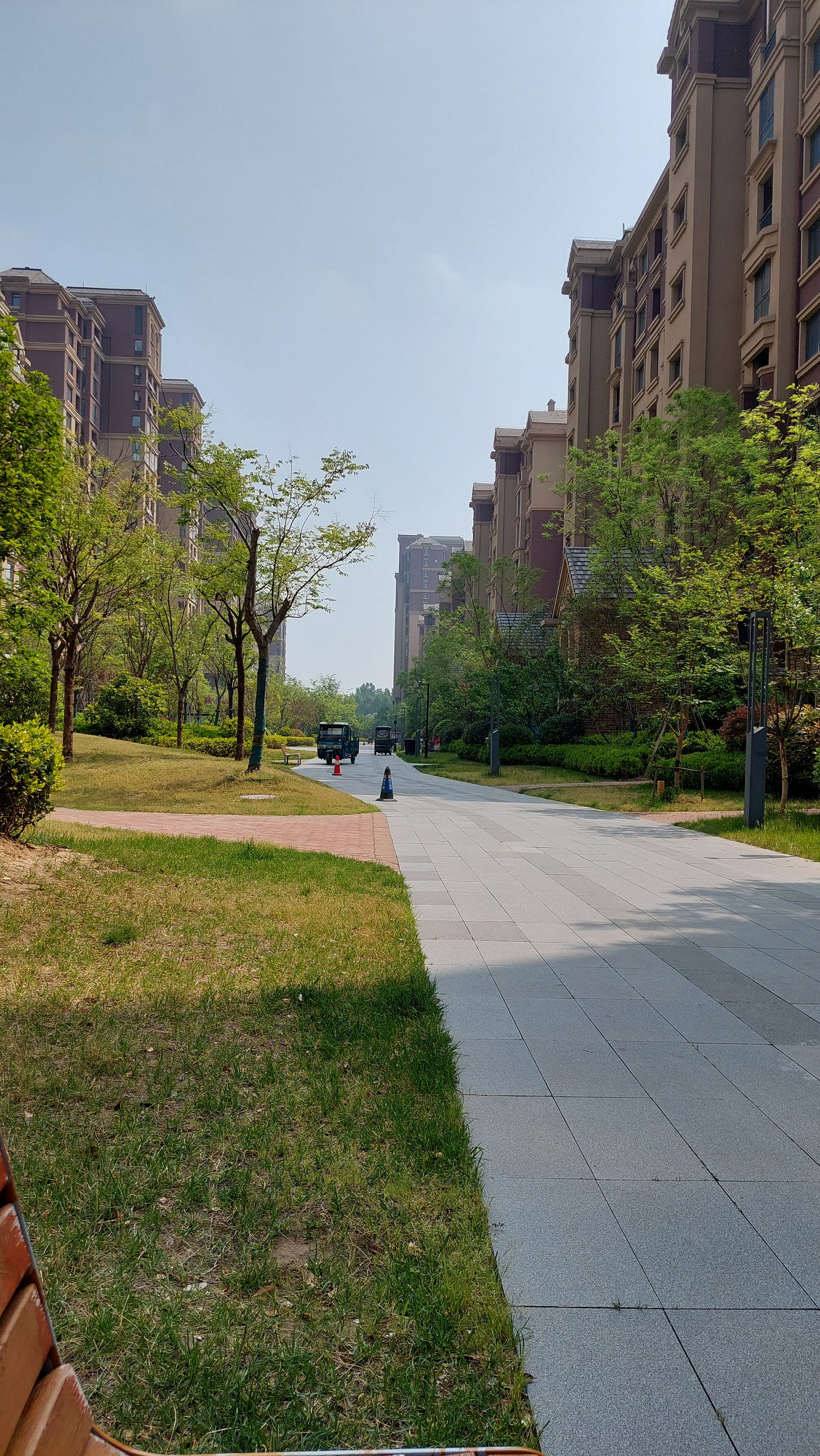
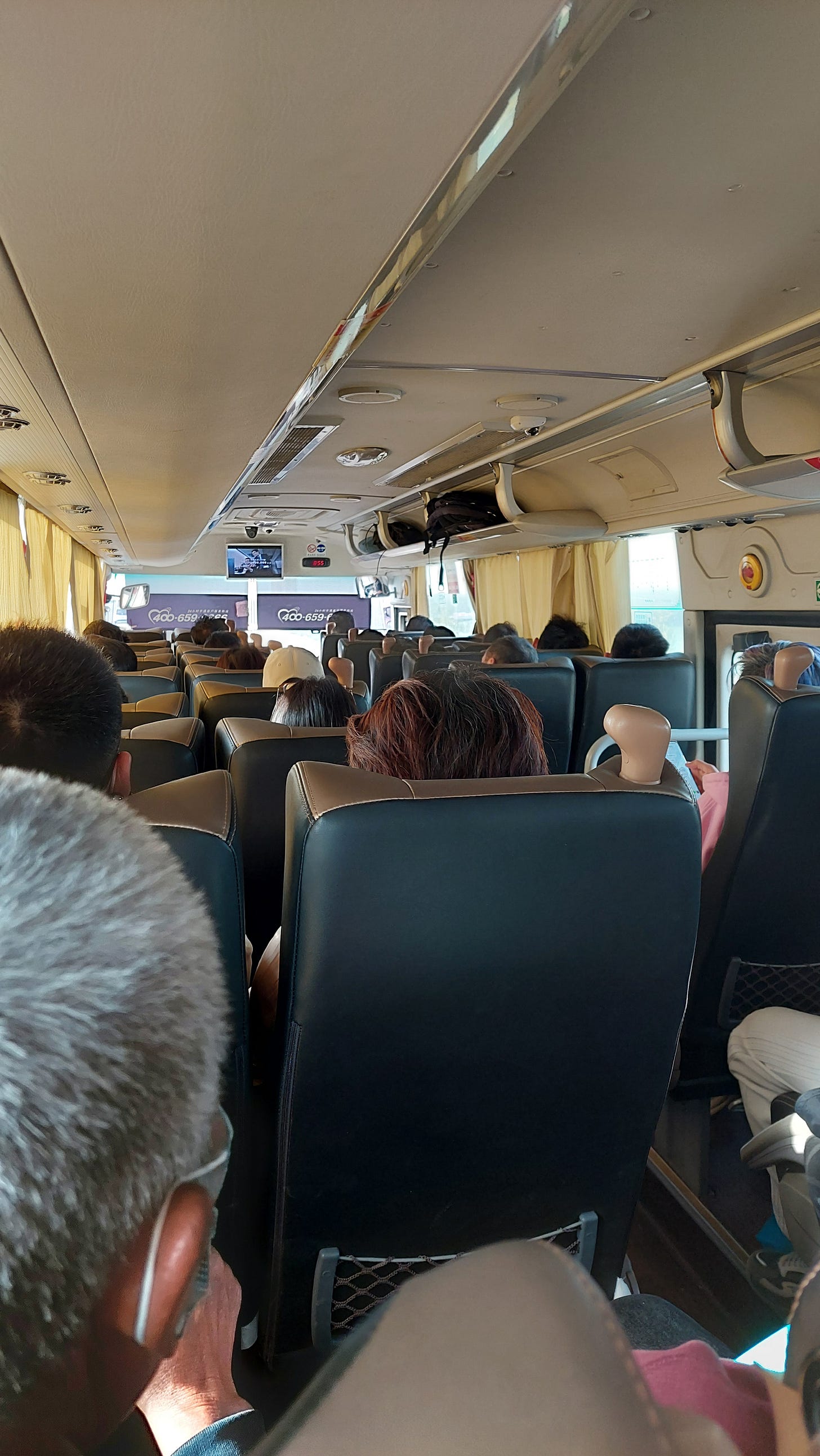
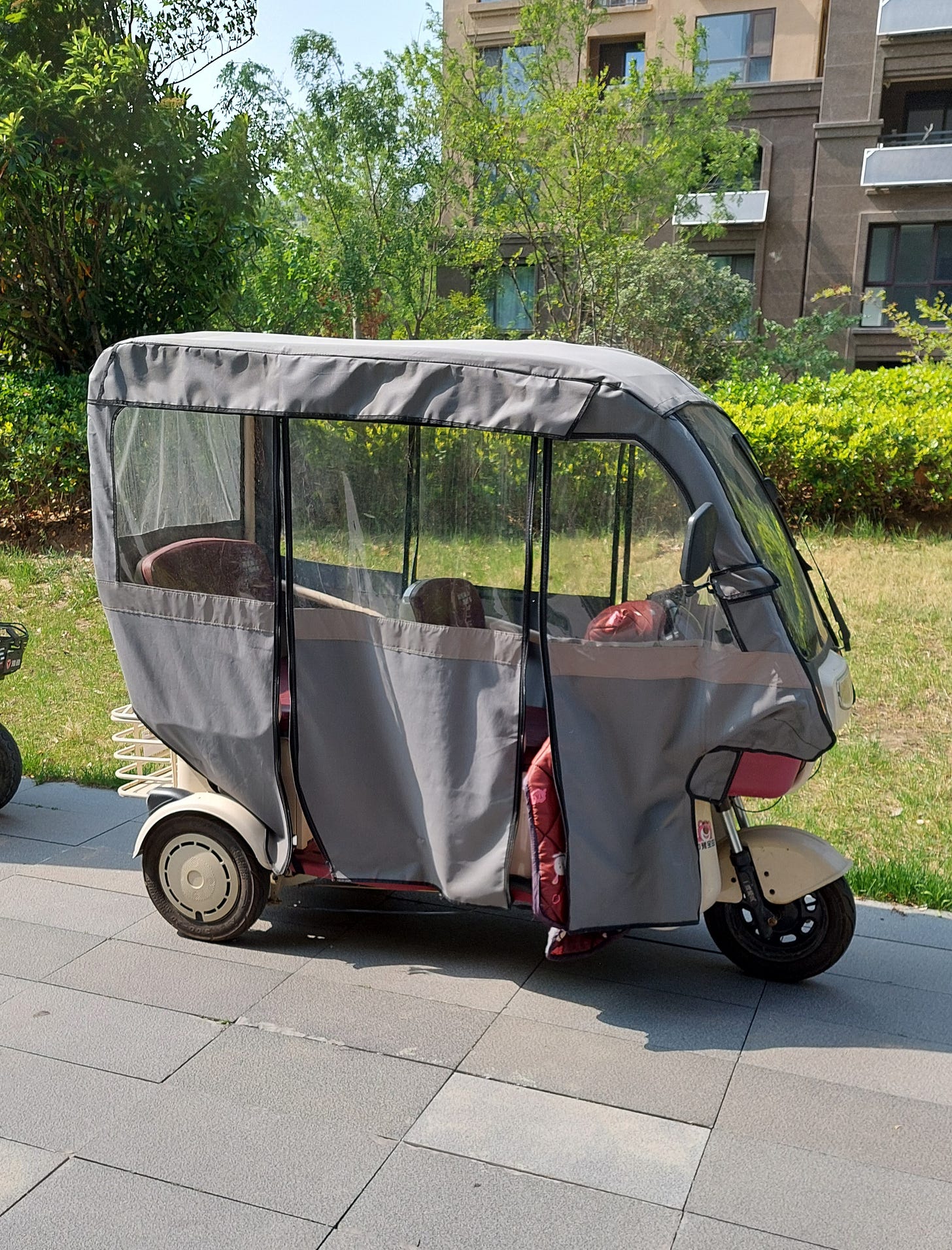
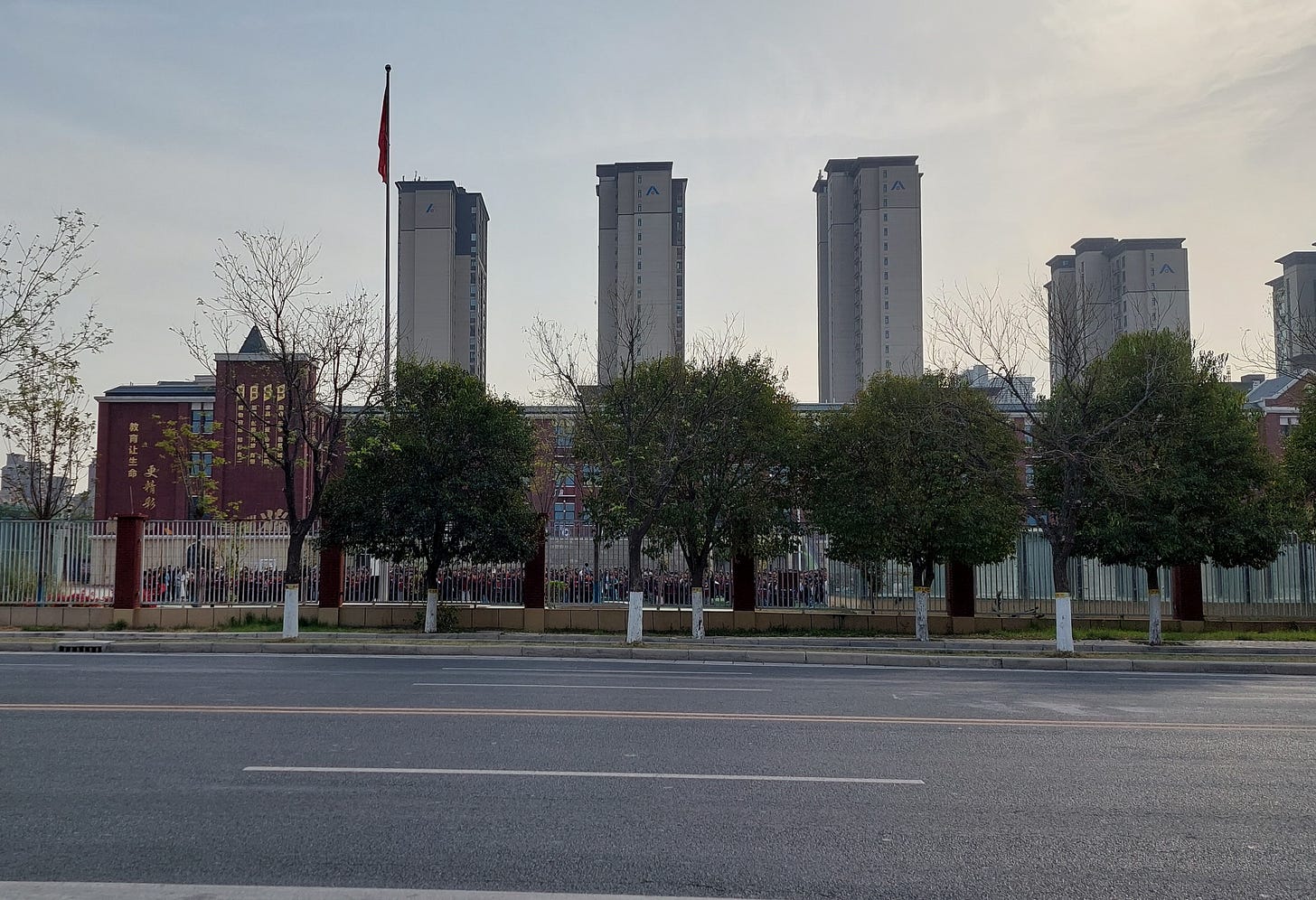


I really enjoyed reading this! It reminds me of my bus commutes earlier this year. I admire your combination of detailed observation and skilled writing. Thanks, Andrew
Slice-of-life reporting is always welcome and useful.